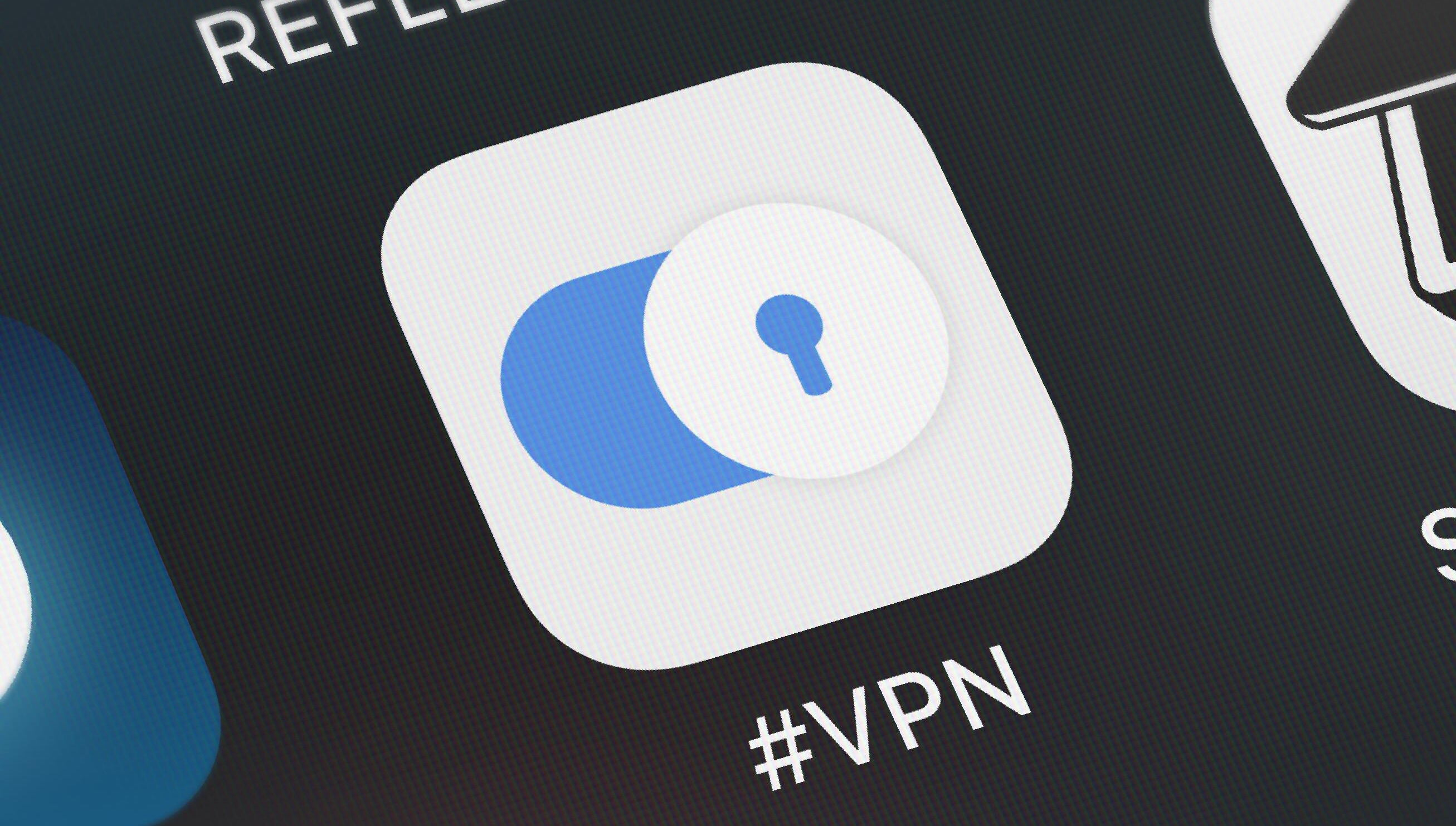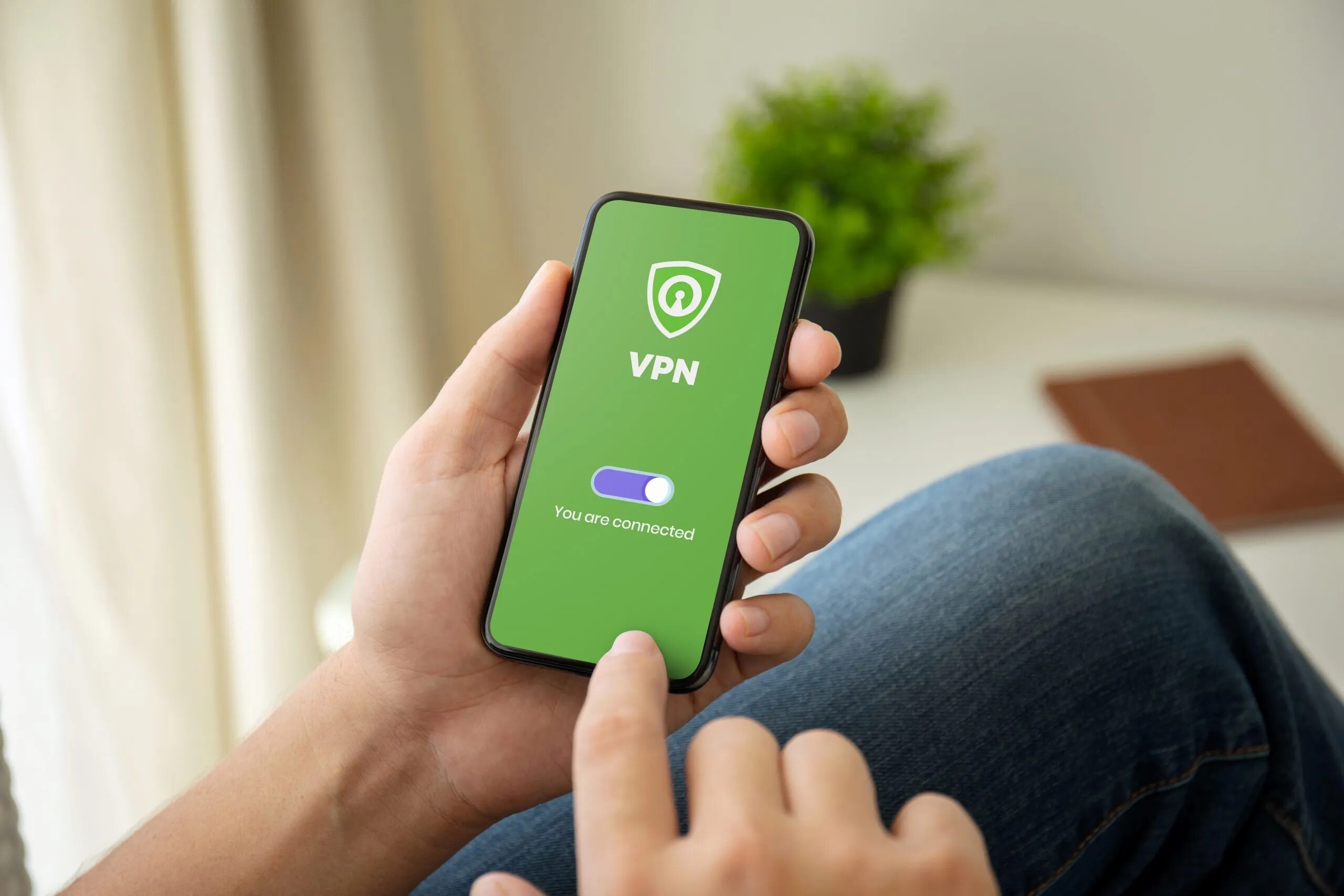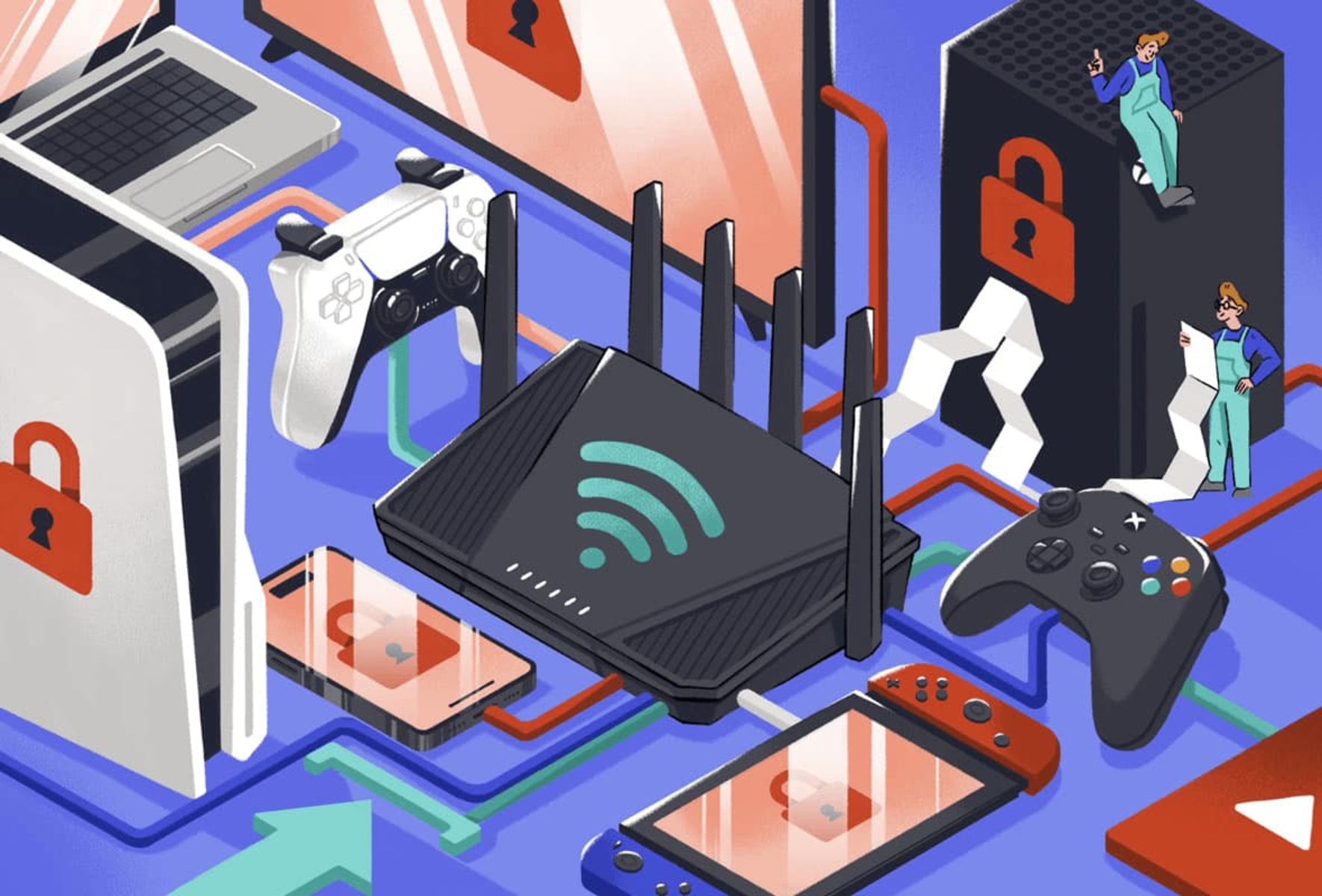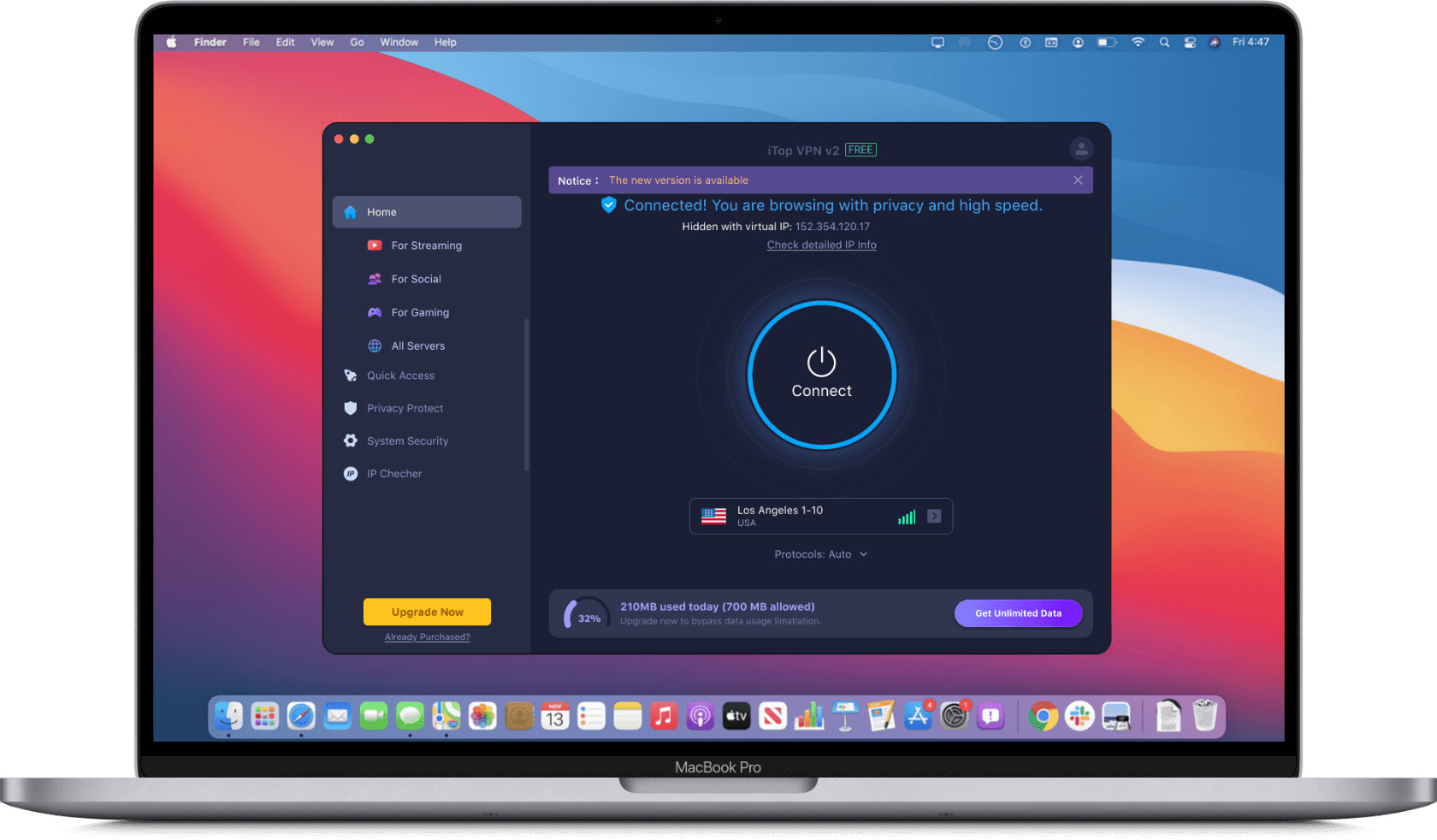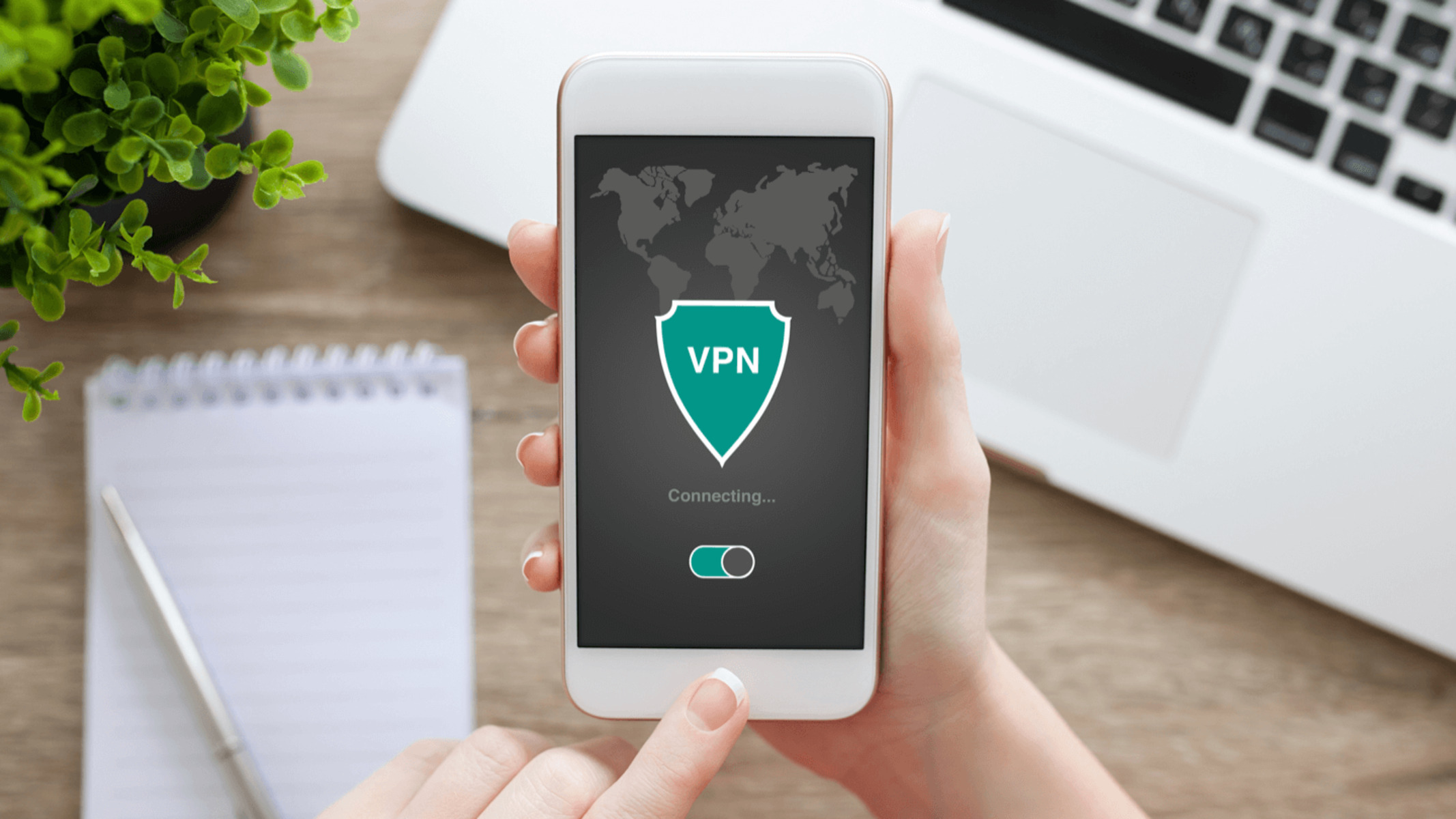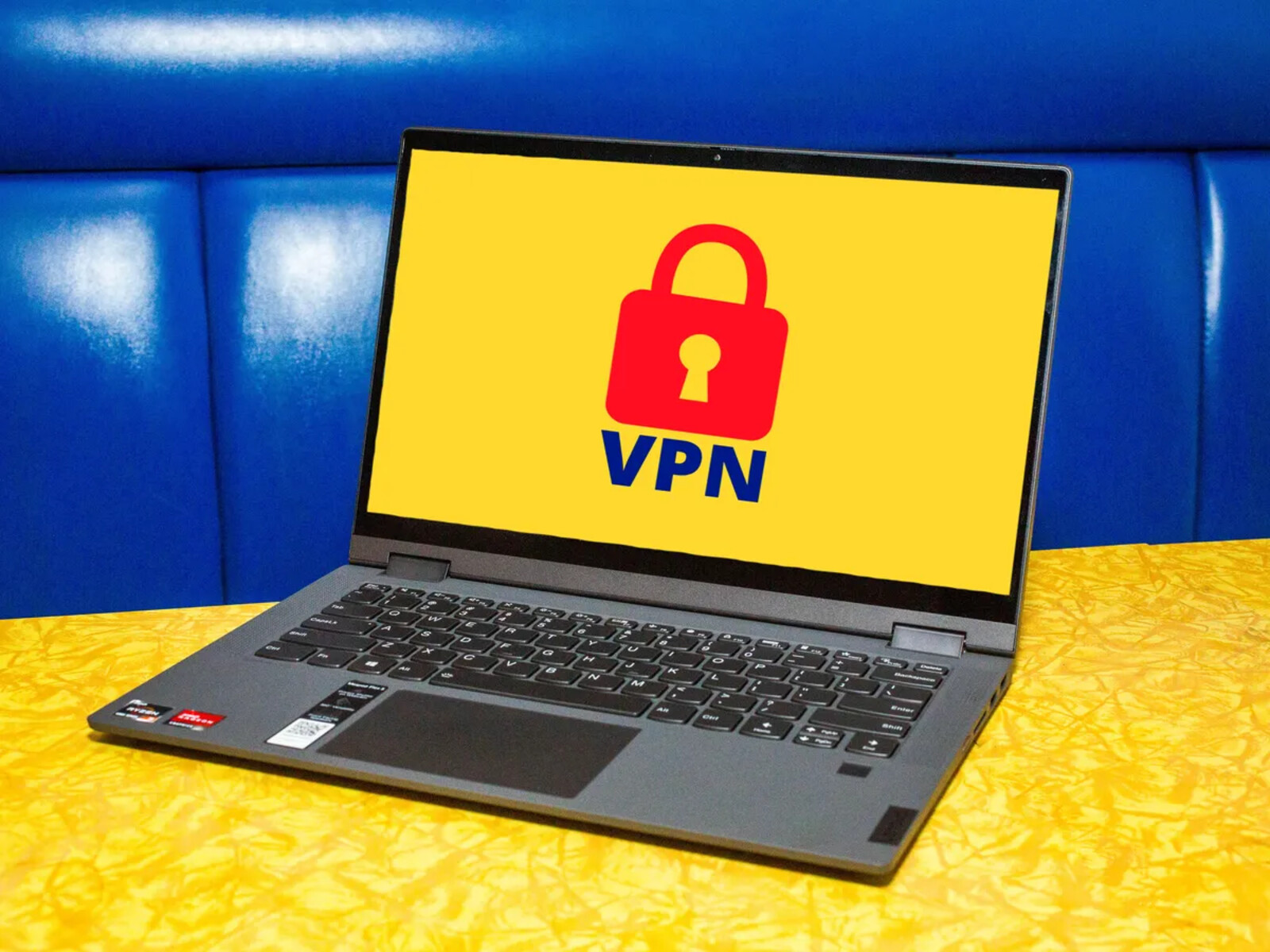Introduction
Welcome to the digital age, where privacy and security are becoming increasingly important. With the rise of cyber attacks, data breaches, and surveillance, it is crucial to protect your online presence. One of the most effective ways to safeguard your privacy and secure your internet connection is by using a Virtual Private Network, or VPN.
A VPN is a service that allows you to create a secure and encrypted connection to a private network over the internet. It acts as a tunnel that encapsulates your internet traffic, ensuring that your data remains private and protected from prying eyes. By connecting to a VPN server, you can mask your IP address, making it difficult for anyone to track your online activities.
But why do you need a VPN in the first place? The answer lies in the numerous benefits and advantages it offers. Firstly, a VPN provides an extra layer of security, especially when you are using public Wi-Fi networks. These networks are notorious for being vulnerable to hackers and cybercriminals. By encrypting your data with a VPN, you can ensure that your sensitive information, such as passwords and financial details, remain safe from potential threats.
Furthermore, a VPN allows you to bypass geographical restrictions and access content that may be blocked in your country. This is particularly useful for streaming services, such as Netflix or Hulu, where certain shows or movies may not be available in your region. With a VPN, you can connect to servers in different countries and enjoy unrestricted access to your favorite content.
When it comes to choosing a VPN, there are several factors to consider. In the following sections, we will explore these factors in more detail to help you make an informed decision. From the logging policy to the device compatibility, we will cover all the essential aspects to ensure that you find the right VPN that meets your needs.
What is a VPN?
A VPN, or Virtual Private Network, is a technology that allows you to establish a secure and encrypted connection between your device and the internet. It acts as a private network, even when you are connected to a public network or using a public Wi-Fi hotspot.
When you connect to a VPN, your internet traffic is routed through a remote server operated by the VPN provider. This server acts as a middleman between your device and the websites or online services you access. The data transmitted between your device and the VPN server is encrypted, ensuring that it remains confidential and cannot be intercepted by anyone attempting to eavesdrop on your connection.
One of the primary functions of a VPN is to hide your IP address. Your IP address is a unique identifier assigned to your device by your internet service provider (ISP). By connecting to a VPN, your internet traffic appears to originate from the VPN server’s IP address, effectively masking your true location and identity.
Additionally, VPNs offer the ability to bypass geographical restrictions. Some online content, such as streaming services or social media platforms, may be restricted or blocked in certain countries or regions. By connecting to a VPN server in a different country, you can overcome these restrictions and access the content as if you were physically present in that location.
Furthermore, VPNs provide an extra layer of security and privacy. Your internet service provider and other third parties can track your online activities, monitor your browsing history, and even sell your data to advertisers. With a VPN, your internet traffic is encrypted, making it difficult for anyone to spy on your online activities, including your ISP.
A VPN can also be used to improve your online privacy by preventing websites, advertisers, and other entities from tracking your IP address and gathering your personal information. This can help protect your privacy, reduce the amount of targeted advertising you receive, and prevent your data from being collected and analyzed without your consent.
Overall, a VPN is a powerful tool to enhance your online security, privacy, and access to unrestricted content. Whether you are concerned about the security of your internet connection or want to access region-restricted content, a VPN can provide the solution you need.
Why do you need a VPN?
In today’s digital world, the need for a VPN has become more important than ever before. Here are several compelling reasons why you should consider using a VPN:
1. Privacy Protection: One of the primary reasons to use a VPN is to protect your privacy online. When you connect to the internet without a VPN, your internet service provider (ISP), government agencies, and even hackers can potentially track your online activities, monitor your browsing history, and collect your personal information. By using a VPN, your internet traffic is encrypted, making it virtually impossible for anyone to eavesdrop on your connection and invade your privacy.
2. Secure Data Transmission: Public Wi-Fi networks, such as those found in coffee shops, airports, and hotels, are convenient but inherently insecure. Hackers can easily intercept your data on these networks, potentially gaining access to your sensitive information, such as passwords, credit card details, and personal files. By using a VPN, your data is encrypted, ensuring that it remains secure and protected from unauthorized access.
3. Access to Restricted Content: Many websites and online services employ geographical restrictions that limit access to their content based on your location. A VPN enables you to bypass these restrictions by connecting to a server located in a different country. This allows you to appear as if you are browsing from a different location, giving you access to region-restricted content, streaming services, and social media platforms.
4. Enhanced Online Security: A VPN adds an extra layer of security to your internet connection. It protects you from various cyber threats, such as hackers, identity theft, and malicious websites. By encrypting your data and hiding your IP address, a VPN ensures that your online activities are shielded from prying eyes, safeguarding your personal information and sensitive data.
5. P2P File Sharing: If you frequently engage in peer-to-peer (P2P) file sharing, a VPN can be highly beneficial. It allows you to download and share files anonymously, ensuring that your IP address is not exposed. This helps to protect you from potential legal issues or copyright infringement claims, as well as maintaining your privacy while engaging in P2P activities.
6. Remote Work and Secure Access: With the increase in remote work, a VPN is essential for ensuring a secure connection when accessing company networks and sensitive data. Whether you are working from a coffee shop, hotel room, or coworking space, a VPN encrypts your connection, preventing unauthorized access and maintaining the confidentiality of your work-related activities.
7. Bypass Internet Censorship: In some countries, governments impose strict internet censorship, blocking access to certain websites and limiting the freedom of information. A VPN can help you bypass these restrictions by encrypting your connection and routing your traffic through servers located in countries with more lenient internet policies.
By using a VPN, you can protect your privacy, secure your data, access global content, and enhance your online security. With the increasing threats to internet privacy and security, a VPN has become an essential tool for anyone who wants to take control of their online presence and enjoy a safer and more unrestricted internet experience.
Factors to consider when choosing a VPN
With a wide range of VPN providers available in the market, choosing the right one can be a daunting task. To help you make an informed decision, here are several key factors to consider:
1. Logging Policy: It is essential to review the VPN provider’s logging policy. Some VPNs may keep logs of your online activities, which can compromise your privacy. Look for a VPN that has a strict no-logs policy, meaning they do not store any personal information or browsing history.
2. Number and Location of Servers: The number and location of servers offered by a VPN provider are crucial. A larger server network ensures better availability and faster connection speeds. Additionally, having servers in multiple locations allows you to bypass geographical restrictions and access content from different regions.
3. Speed and Performance: The speed and performance of a VPN are vital, especially if you engage in activities that require high bandwidth, such as streaming, online gaming, or large file transfers. Look for VPN providers that offer fast and stable connections to ensure a smooth and uninterrupted browsing experience.
4. Security and Encryption Protocols: Pay close attention to the security protocols and encryption methods utilized by the VPN provider. Look for VPNs that offer industry-standard encryption, such as AES-256, and support secure protocols like OpenVPN or WireGuard. These protocols ensure that your data remains secure and protected during transit.
5. Device Compatibility: Consider the compatibility of the VPN software with your devices and operating systems. A good VPN provider should offer apps and support for a wide range of devices, including desktops, laptops, smartphones, and tablets. Ensure that the VPN can be easily installed and used on all your devices.
6. User-friendly Interface: Look for a VPN provider that offers a user-friendly interface and intuitive navigation. The VPN software should be easy to set up and configure, even for non-technical users. A clean and user-friendly interface contributes to a better overall user experience.
7. Customer Support: Consider the level of customer support provided by the VPN provider. Look for VPNs that offer 24/7 customer support via various channels, such as live chat, email, or phone. Responsive and knowledgeable customer support can assist you in resolving any issues or queries that may arise.
8. Price and Payment Options: Evaluate the pricing plans and payment options offered by the VPN provider. Consider your budget and the value provided by the VPN service. Look for flexible payment options, such as monthly or annual plans, and providers that offer a money-back guarantee to ensure your satisfaction.
By considering these factors, you can select a VPN provider that meets your specific needs and requirements. Remember to prioritize privacy, security, performance, and user experience to ensure a reliable and enjoyable VPN experience.
Logging Policy
When choosing a VPN, one crucial factor to consider is the logging policy of the provider. A logging policy refers to how much information the VPN provider retains about your online activities. It is essential to understand this policy to ensure your privacy and security.
Some VPNs claim to have a strict no-logs policy, meaning they do not collect or store any data relating to your internet activities. This includes information such as your IP address, browsing history, and connection timestamps. Opting for a VPN with a no-logs policy ensures that there is no record of your online activities that could potentially be accessed or used against your privacy.
On the other hand, some VPN providers may keep minimal logs for troubleshooting purposes. These logs may include non-identifiable connection logs, such as the server you connected to and the total data transferred. While these minimal logs can help address technical issues, they do not compromise your privacy since they do not contain any personally identifiable information.
However, some VPN providers may retain extensive logs, including your IP address, DNS queries, and even the specific websites you visit. VPNs with such logging policies can potentially expose your online activities and compromise your privacy. It is crucial to steer clear of VPNs that retain these logs, as they can undermine the very purpose of using a VPN.
When reviewing a VPN’s logging policy, it is essential to consider their jurisdiction. Some countries have strict data retention laws, requiring VPN providers to keep logs of their users’ activities. In contrast, other countries have more favorable privacy laws, allowing VPN providers to adopt a zero-log policy confidently.
Transparent VPN providers will clearly explain their logging policy in their privacy policy or terms of service. Look for providers that explicitly state their commitment to privacy and explicitly mention their no-logs policy to ensure that your online activities remain anonymous and confidential.
To further ensure your privacy, you can also consider VPN providers that have undergone independent audits or third-party assessments. These audits verify if the VPN provider adheres to their stated no-logs policy and provide an extra layer of trust and transparency.
Taking the time to research and understand the logging policy of a VPN provider is crucial for safeguarding your privacy. By choosing a VPN with a strict no-logs policy, you can be confident that your online activities are not being monitored, tracked, or stored, allowing you to maintain your anonymity and secure your sensitive information.
Number and Location of Servers
When choosing a VPN, one important factor to consider is the number and location of servers offered by the provider. The server network plays a crucial role in determining the performance, reliability, and versatility of the VPN service.
The number of servers available is significant as it impacts the availability and distribution of resources. A larger server network generally ensures a more reliable and stable connection, as it distributes the user load effectively. With more servers, users can connect to a server that is geographically closer to them, reducing latency and improving connection speeds.
Furthermore, having servers in multiple locations allows users to bypass geographical restrictions and access content that may be blocked in their country. For example, if you are located in a country where certain websites or streaming services are restricted, a VPN with servers in different countries will enable you to connect to a server in a location where the content is accessible.
Additionally, the location of the servers is essential when it comes to security and privacy. Choosing a VPN with servers in privacy-friendly jurisdictions can help protect your data since these jurisdictions may have stricter privacy laws in place.
When considering the location of VPN servers, it is beneficial to look for servers in a wide range of countries and regions. This ensures that you have the flexibility to access content from different locations worldwide. Moreover, having servers distributed across various continents allows for better global connectivity and reduces the chances of overcrowding on specific server locations.
In addition to the number and location of servers, it is worth considering the type of servers offered by the VPN provider. Some VPNs offer specialized servers optimized for specific activities, such as streaming, gaming, or torrenting. If you have specific needs, such as streaming high-definition content or accessing P2P networks, choosing a VPN with dedicated servers for those purposes can enhance your overall experience.
It is also worth noting the infrastructure and quality of the servers. Look for VPN providers that have robust server infrastructure, use modern hardware, and have sufficient bandwidth to ensure smooth and stable connections. Server maintenance and regular updates are also important factors to consider, as they contribute to the reliability and security of the VPN service.
By taking into account the number and location of servers offered by a VPN provider, you can ensure that you have access to a reliable, fast, and versatile network. A diverse server network will allow you to bypass restrictions, maintain your privacy, and enjoy an optimized VPN experience across different locations.
Speed and Performance
When selecting a VPN, one crucial factor to consider is the speed and performance it offers. A VPN with fast and consistent speeds ensures a smooth and enjoyable internet browsing experience. Here are some key points to consider regarding the speed and performance of a VPN:
1. Connection Speed: The connection speed of the VPN is of paramount importance. A slow VPN can result in frustratingly slow downloads, buffering during streaming, and delays in loading web pages. Look for VPN providers that offer high-speed connections to ensure a seamless and uninterrupted browsing experience.
2. Server Network Load: The server network load refers to the number of users connected to a particular server at a given time. When a server is heavily loaded, it can result in reduced speeds and performance. Opt for VPN providers with a large server network to minimize the chances of overcrowded servers and ensure consistent speeds.
3. Distance to Server: The physical distance between your device and the VPN server can impact the connection speed. Connecting to a geographically closer server generally results in faster speeds due to lower latency. Consider VPN providers that offer servers in locations near your actual location to minimize latency and optimize performance.
4. Bandwidth Limitations: Some VPN providers impose bandwidth limitations, which can significantly affect your internet speed. Review the VPN’s terms and conditions to ensure that there are no restrictions on the amount of data you can transfer. Unlimited or high bandwidth allocations are preferable for a seamless browsing experience.
5. VPN Protocol: Different VPN protocols have varying impacts on speed and performance. OpenVPN and WireGuard are known to offer faster speeds compared to other protocols. It is advisable to choose a VPN provider that supports these efficient and reliable protocols, ensuring optimal speed and encryption.
6. Network Infrastructure: The infrastructure and quality of a VPN provider’s network play a crucial role in determining its speed and performance. Look for VPNs that have robust server infrastructure and utilize high-quality hardware. Regular server maintenance and software updates also contribute to maintaining optimal performance.
7. ISP Throttling: Internet Service Providers (ISPs) may deliberately slow down certain types of internet traffic, such as streaming or torrenting. However, by using a VPN, you can encrypt your internet traffic and prevent your ISP from throttling specific activities. This can help improve your overall connection speed.
8. Test and Evaluate: Before committing to a VPN provider, it is advisable to test their service using free trials or money-back guarantees. This allows you to evaluate the speed and performance firsthand on your specific device and network. Conducting tests during different times of the day can also provide insights into the VPN’s consistency.
By considering these factors, you can choose a VPN provider that delivers optimal speed and performance. A fast and reliable VPN ensures that you can browse the internet, stream content, download files, and engage in online activities without interruptions or frustrating delays.
Security and Encryption Protocols
When selecting a VPN, security should be a top priority. A VPN is primarily designed to protect your online privacy and secure your internet connection. Here are some key points to consider regarding the security and encryption protocols offered by a VPN:
1. Encryption Levels: Encryption is a crucial aspect of VPN security. Look for VPN providers that offer robust encryption protocols, such as AES-256, which is currently considered the industry standard. Advanced encryption ensures that your data is protected and unreadable to unauthorized third parties.
2. VPN Protocols: VPN protocols determine how the VPN establishes and secures its connection. Common VPN protocols include OpenVPN, IKEv2, and L2TP/IPsec. OpenVPN is widely regarded as one of the most secure and reliable protocols. Evaluate the VPN provider’s offered protocols and opt for those that prioritize both security and performance.
3. Kill Switch: A kill switch is an important feature to look for in a VPN. It ensures that your internet connection is severed if the VPN connection drops unexpectedly. This prevents any data from being transmitted outside the secure VPN tunnel, protecting your privacy even in moments of connection instability.
4. DNS Leak Protection: DNS leaks can occur when your DNS requests are not properly routed through the VPN, potentially exposing your browsing activity. Look for VPN providers that offer DNS leak protection, ensuring that all your internet traffic is securely encrypted and routed through the VPN network.
5. IP Address Masking: The ability of a VPN to hide your IP address is crucial for maintaining anonymity online. When connected to a VPN server, your true IP address is replaced with the IP address of the VPN server, making it difficult for websites and online services to track your location and identity.
6. Security Audits and Certifications: Some VPN providers undergo independent security audits to verify the integrity and security of their services. Look for VPNs that have been audited by reputable third-party organizations to ensure that they adhere to high standards of security and privacy. Certifications, such as ISO 27001 or SOC 2, can also provide additional assurance.
7. Jurisdiction and Data Retention Laws: The jurisdiction in which the VPN provider operates can have implications for privacy and security. Countries with stringent data protection laws are generally more favorable. Ensure that the VPN provider operates under a jurisdiction that respects user privacy and does not have mandatory data retention laws.
8. Trusted and Transparent Policies: Review the VPN provider’s privacy policy and terms of service to understand their commitment to user privacy and security. Look for providers that are transparent about their data handling practices and adhere to a strict no-logs policy. Trustworthy VPNs are upfront about their security features and are proactive in addressing potential vulnerabilities.
By considering these factors, you can select a VPN provider that prioritizes the security and privacy of its users. Robust encryption, secure protocols, kill switch functionality, and other essential security features are all crucial components of a reliable and secure VPN service.
Device Compatibility
When choosing a VPN, it is important to consider its compatibility with your devices. A VPN that supports multiple platforms and operating systems ensures that you can protect your privacy and secure your internet connection across all your devices. Here are some points to consider regarding device compatibility:
1. Operating Systems: Look for VPN providers that offer dedicated apps for the operating systems you use, such as Windows, macOS, iOS, and Android. This allows you to easily install and configure the VPN on your preferred devices without any technical hassle.
2. Multiple Device Support: Consider VPN providers that allow multiple device connections simultaneously. This allows you to secure all your devices, such as your desktop computer, laptop, smartphone, and tablet, with a single VPN subscription. Multi-device support offers convenience and flexibility for users with multiple devices.
3. Browser Extensions: Some VPN providers offer browser extensions that can be installed on popular web browsers like Chrome, Firefox, or Safari. These extensions provide a lightweight VPN solution specifically for browsing the web, ensuring your online activities are protected even when not using the full VPN client.
4. Router Compatibility: For advanced users and those who want to secure all devices connected to their home network, router compatibility is important. Look for VPN providers that offer detailed setup guides and support for configuring their VPN on compatible router models. With a VPN-enabled router, all devices connected to the network can benefit from VPN protection.
5. Simultaneous Connections: Evaluate the number of simultaneous connections allowed by the VPN provider. Some providers allow only a limited number of connections per subscription, while others offer unlimited connections. Consider your specific needs and the number of devices you intend to secure with the VPN.
6. Cross-Platform Integration: Consider VPN providers that offer seamless integration with other platforms and services. For example, some VPNs provide integration with popular media streaming devices, gaming consoles, or smart TVs. This allows you to extend the benefits of the VPN to a wider range of devices in your home.
7. Mobile Device Optimization: If you primarily use VPN services on your mobile devices, look for VPN providers that offer optimized apps specifically for mobile platforms. These apps often provide a user-friendly interface, faster connection speeds, and additional features tailored for mobile browsing, such as auto-connect on Wi-Fi networks or data-saving modes.
8. User-friendly Interface: Consider VPN providers that offer intuitive and user-friendly interfaces across all devices. A well-designed VPN application makes it easier for users to connect, disconnect, switch servers, and access other important features and settings. A user-friendly interface contributes to a positive VPN experience.
By considering these factors, you can choose a VPN provider that is compatible with your devices and offers a seamless, consistent, and secure experience across all platforms. Whether you are using a desktop computer, laptop, smartphone, or other devices, ensuring device compatibility allows you to protect your privacy and secure your internet connection effectively.
User-friendly Interface
When selecting a VPN, one important factor to consider is the user-friendly interface of the VPN client or application. An intuitive and well-designed interface makes it easier to use and navigate the VPN software, ensuring a smoother and more enjoyable experience. Here are some key points to consider regarding the user-friendly interface:
1. Easy Setup and Configuration: An ideal VPN should have a straightforward setup process. Look for VPN providers that offer easy-to-follow setup guides, clear instructions, and intuitive installation processes. A user-friendly setup ensures that even non-technical users can quickly get the VPN up and running.
2. Intuitive Design and Navigation: The VPN application should have an intuitive design and user-friendly interface. A well-organized layout, easily accessible features, and a clear navigation menu contribute to a positive user experience. Users should be able to navigate through the VPN software effortlessly, allowing them to connect, disconnect, and adjust settings easily.
3. Server Selection and Switching: The VPN interface should provide an easy way to select and switch between servers. Look for VPNs that provide visual representations of server locations on a map or offer a clear list of available servers. A user-friendly interface allows users to choose the desired server quickly and efficiently.
4. Connection Status and Notifications: The VPN software should provide clear information about the status of the VPN connection. A user-friendly interface displays whether the VPN is connected or disconnected, as well as relevant connection details such as the chosen server location and IP address. Notifications can also be helpful in informing users about connection changes or potential issues.
5. Settings and Customization: A user-friendly VPN interface should offer a range of customizable settings to cater to different user preferences. This includes options for protocols, kill switch, DNS leak protection, and other advanced features. Providing flexibility allows users to customize their VPN experience to suit their individual needs.
6. Information and Support: The VPN software should provide helpful information and resources to assist users. This can include FAQs, tutorials, support articles, and live chat support. Having accessible support options within the VPN interface ensures that users can easily find assistance if they encounter any issues or have questions.
7. Mobile Apps: If you plan to use the VPN on mobile devices, consider VPN providers that offer well-designed and user-friendly mobile apps. The interface should be optimized for touchscreens, with streamlined navigation and intuitive controls. Mobile apps that offer additional features like one-click connect or auto-connect on Wi-Fi networks contribute to a user-friendly experience.
8. Regular Updates and Improvements: A user-friendly VPN interface is continually updated and improved based on user feedback and industry trends. Look for VPN providers that regularly release updates, bug fixes, and new features to ensure a consistently smooth and user-friendly experience.
By considering these factors, you can choose a VPN provider that offers a user-friendly interface, allowing you to easily navigate the VPN software, customize settings, and ensure a hassle-free VPN experience across all your devices.
Customer Support
When selecting a VPN, it is crucial to consider the level and quality of customer support offered by the provider. Reliable customer support ensures that you can receive assistance whenever you encounter issues or have questions regarding the VPN service. Here are some key points to consider regarding customer support:
1. Availability and Responsiveness: Look for VPN providers that offer 24/7 customer support. Issues can arise at any time, and having access to support around the clock ensures that you can get timely assistance whenever you need it. Additionally, consider the responsiveness of the customer support team. Quick response times indicate that your concerns will be addressed promptly.
2. Contact Channels: Evaluate the contact channels provided by the VPN provider. Common contact methods include live chat, email, and phone support. A VPN with multiple contact options gives you flexibility in choosing the most convenient channel for your needs. Live chat support is particularly helpful for resolving issues quickly.
3. Knowledge and Expertise: Consider the knowledge and expertise of the customer support team. They should possess a deep understanding of the VPN service and be able to effectively troubleshoot and address customer queries. Experienced support agents can provide accurate and helpful solutions to any problems you encounter.
4. Self-Help Resources: Look for VPN providers that offer comprehensive self-help resources, such as FAQs, tutorials, knowledge bases, and troubleshooting guides. These resources can assist you in resolving common issues or answering basic questions without the need for direct interaction with customer support. Having easily accessible self-help materials enhances the customer support experience.
5. Community Forums and User Communities: Some VPN providers maintain community forums or user communities where users can interact, share experiences, and help each other. Participating in these forums can provide valuable insights and solutions to common problems. Consider VPNs that have an active and engaged user community for an additional layer of support.
6. Language Support: If you are not a native English speaker, consider VPN providers that offer customer support in your preferred language. Being able to communicate in your native language can help to alleviate any language barriers and ensure clear understanding between you and the customer support team.
7. Transparency and Accountability: Trustworthy VPN providers are transparent about their customer support processes and strive for accountability. They provide clear information about response times, service level agreements, and escalation procedures when necessary. Transparent customer support practices build trust between the provider and the user.
8. User Feedback and Reviews: Research user feedback and reviews about the customer support services of the VPN provider. This can provide insights into the overall customer satisfaction and the effectiveness of their support team. Positive feedback indicates that the provider prioritizes customer satisfaction and offers reliable support.
By considering these factors, you can choose a VPN provider that offers dependable and accessible customer support. Having a reliable support system ensures that you can receive timely assistance, resolve issues effectively, and have a positive experience with the VPN service.
Price and Payment Options
When selecting a VPN, price and payment options are important considerations. While the cost of the VPN service should align with your budget, it is equally crucial to evaluate the value offered by the provider. Here are some key points to consider regarding price and payment options:
1. Pricing Plans: Evaluate the pricing plans offered by the VPN provider. Some providers offer flexible monthly plans, while others offer discounted rates for longer-term commitments, such as annual or biennial plans. Consider your usage patterns and determine which pricing plan suits your needs and budget best.
2. Free Trials and Money-Back Guarantees: Look for VPN providers that offer free trials or money-back guarantees. These options allow you to test the VPN service risk-free before making a long-term commitment. Free trials usually provide limited access or a trial period, while money-back guarantees typically allow you to claim a refund within a specified time frame.
3. Features and Value: Consider the features and value offered by the VPN provider in relation to its price. Evaluate the encryption levels, server network size, simultaneous connections, additional security features, and other aspects that contribute to the overall value of the VPN service. Ensure that the price is justified by the features and benefits you will receive.
4. Payment Methods: Check the payment options available. Reliable VPN providers offer various payment methods, including credit/debit cards, PayPal, cryptocurrency, and other popular payment gateways. Consider your preferred payment method and ensure that it is supported by the VPN provider.
5. Discounts and Special Offers: Some VPN providers offer discounts or special offers during promotional periods or for specific user groups, such as students or members of certain organizations. It is worth checking if any discounts are available to get the best value for your money. Additionally, keep an eye out for seasonal sales or holiday deals.
6. Renewal Rates: Be aware of the renewal rates of the VPN service. Some VPN providers may offer discounted rates for the initial subscription term but increase the price upon renewal. It is important to consider the long-term cost of the VPN service and any potential renewal rate increases when assessing its overall affordability.
7. Customer Support and Service Level: Price should not be the sole determining factor; consider the quality of customer support and overall service level offered by the VPN provider. Paying a slightly higher price for better customer support and reliable service may be worth the investment in the long run.
8. Refund Policies: Familiarize yourself with the VPN provider’s refund policies. Ensure they have a fair and transparent refund policy in case you are dissatisfied with the service. Pay attention to any conditions, such as time limits or data usage limits, that may affect your eligibility for a refund.
By considering these factors, you can select a VPN provider that offers competitive pricing, flexible payment options, and good value for your investment. It is important to strike a balance between affordability and the features and benefits provided by the VPN service to ensure the best overall experience.
Conclusion
Choosing the right VPN is essential to protect your privacy, secure your internet connection, and enjoy unrestricted access to the online world. By considering the factors mentioned in this article, you can make an informed decision that best suits your needs. Here’s a recap of the key points to consider when choosing a VPN:
Firstly, examine the VPN provider’s logging policy to ensure that your online activities remain private and confidential. Look for VPNs with strict no-logs policies to ensure your data is not stored or shared.
The number and location of servers are important factors in determining the availability, speed, and versatility of the VPN service. A larger server network with locations worldwide allows for better performance and enables you to bypass geographical restrictions.
Security and encryption protocols are crucial for protecting your data and ensuring your online security. Look for VPNs that offer robust encryption, secure protocols, and additional features like kill switch functionality.
Consider the compatibility of the VPN with your devices and operating systems. Look for VPN providers that offer dedicated apps for various platforms, allowing you to protect all your devices.
An intuitive and user-friendly interface enhances the overall VPN experience. Look for VPNs that have easy setup and configuration processes, intuitive design, and user-friendly features like server selection and switching.
Reliable customer support can be vital if you encounter any issues or have questions regarding the VPN service. Look for VPN providers that offer 24/7 customer support and multiple contact channels, along with helpful self-help resources.
Price and payment options should also be considered, ensuring the VPN you choose aligns with your budget and offers good value for the features and benefits it provides.
By carefully considering these factors, you can find a VPN that meets your specific needs and requirements, providing you with a secure, private, and unrestricted browsing experience. Remember to prioritize your privacy, security, speed, and overall usability to make the most of your chosen VPN service.
With the right VPN, you can browse the internet with peace of mind, knowing that your privacy is protected and your online activities remain secure. Take the time to research and evaluate different VPN options to find the one that best fits your needs. Remember, a VPN is an investment in your online security and freedom, and choosing wisely will have a significant impact on your digital experience.









